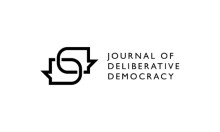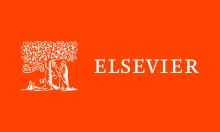Abstract. Decentralisation was one of the more visible changes in Western welfare states from the 1970s to the 2000s and was viewed by some as an unstoppable trend. However, during the Great Recession, governmental responses to certain policy problems have called into question the decentralisation process through a series of recentralising changes in territorial governance in…
February 2025


Abstract. The increasing implementation of deliberative mini-publics (DMPs) such as Citizens’ Assemblies and Citizens’ Juries led the OECD to identify a ‘deliberative wave’. The burgeoning scholarship on DMPs has increased understanding of how they operate and their impact, but less attention has been paid to the drivers behind this diffusion. Existing research on democratic innovations has…

Abstract. As part of a broader research programme on the federal governance of COVID-19 in Spain, this systematic literature review centers on the nexus between territorial politics and the coronavirus crisis. It analyses 300 publications in the Web of Science Core Collection from 2018 to 2023 through the Preferred Reporting Items for Systematic Reviews and Meta-Analyses (PRISMA) method. The…

Abstract. Extant literature has largely analysed how European Union (EU) migrant citizens' welfare rights are framed in public discourses and affect social solidarity, delving into the concept of ‘welfare deservingness’. Surprisingly, the healthcare domain is comparatively less researched. Few studies have unpacked the concept of ‘healthcare deservingness’ and its variations across contexts when…
January 2025

Abstract. The Council’s enforcement inaction regarding the rule of law crisis has been endlessly criticised by scholars and commentators. However, there is currently no theoretically parsimonious explanation of why some national governments oppose enforcement whilst others are more inclined to support it. We address this question by considering structural (time of accession), semi-structural (…

Abstract. The COVID-19 pandemic unveiled and magnified structural challenges of long-term care (LTC) provision and work across Europe, bringing the need for reforms on the quality-of-care provision and work to the fore in several countries. Focusing on the case of Spain, this paper analyses to what extent the window of opportunity opened by the pandemic resulted in structural LTC reform, focusing…

Abstract. In countries with multi-level governance, the balance of power between centre and periphery results from complex bargaining processes. Existing literature equates decentralisation to its de jure dimension, which risks missing variation in the extent to which decentralisation reforms take place. In this paper, we argue that decentralisation is a two-stage process. In the first step,…

Abstract. The idea of a Universal Inheritance (UI) has been recently gaining weight amongst scholars concerned over increasing wealth inequality. A UI consists of a one-off public payment of an agreed sum to each citizen of young adulthood. In this article, we provide the results of novel simulations to assess the cost and the distributive impact of such policy by testing different parameters for…
December 2024

Abstract. Authoritarian elites may play an essential role in transitioning democracies, but little is known about the fate of these elites beyond that of the top leaders. This article offers the first panel-data study of authoritarian elites in a transitional democracy. We focus on Spain, a paradigmatic case of successful democratization from above, and rely on an original dataset…

Abstract. The COVID-19 pandemic brought about some extraordinary shifts in citizens’ preferences about intergovernmental responsibilities in several federal states and has therefore provided an especially interesting context to contribute to the ongoing debate about the scope, direction, and determinants of attitudinal change in citizens’ preferences in situations of protracted crisis. Although…


